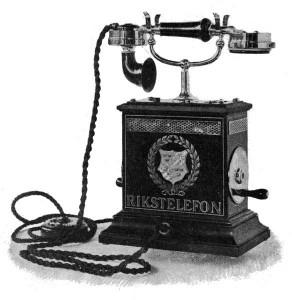♫ The sun will come out tomorrow
So you gotta hang on
’til tomorrow, come what may!
Tomorrow, tomorrow, I love ya, tomorrow
You’re always a day away! ♫
Lyrics and music by: Charles Strouse and Martin Charnin, recorded by Anne.
This is the time of the year that I love! The 2016 Predictions – Part I! Our group of thoughtful prognosticators have put their thinking caps on and now we can see what they think lies ahead. In this instalment, we have predictions from:
- Gerry Riskin
- Bill Lipner
- Jordan Furlong
- Terrance Hudson
- Larry Bodine
- Buzz Bruggerman
- Colin Rule
- Ellen Freedman
- Bob Denney
- Sharon Nelson and John Simek
- Joshua Lennon
- Sheila Blackford
- Andre Coetzee
- Ben Stevens
- Brian Mauch
- Nikki Black
- Frank Fowlie
- Russell Alexander
- Michael McCubbin
- Rob Walls
- Rodger Smith
- Kevin O’Keefe
- Yours truly and others…
I hope you have as much fun with these as I do! And you, gentle reader, can send in your predictions for the next instalment!
Gerry Riskin:
In 2016, The legal profession camel will grow a 3rd hump.
Traditional hump number one will be the top firms doing the top work for the top clients. They have their own set of problems but for the most part will survive for at least one more year.
Hump number two will be firms that are sensitive to a major shift in the marketplace and will adapt quickly and imaginatively with sophisticated project management, pricing and labor allocation.
Hump number three are the firms that are holding on to tradition for dear life. One well known hump three firm (that was perceived to be very strong) will surprise the marketplace by disclosing major weakness under their financial hood and rapidly liquidate. This event may be the catalyst that causes other hump three firms to move into hump two with great speed as 2017 approaches.
About Gerry:
“When Gerry speaks, he reaches parts of your mind that have never been used before.”
–Sue Stapely, Solicitor and Media Professional; London, England
Gerry Riskin, B.Com. LLB, P. Admin, is a Canadian lawyer and Business School graduate with a global reputation.Gerry has clients including the most prominent firms in the world. Gerry is also a Visiting Fellow of The College of Law in London and a Visiting Professor to the Gordon Institute of Business Science at the University of Pretoria in South Africa, and a Fellow of the College of Law Practice Management.
Gerald Riskin is a Canadian lawyer and Business School graduate with a global reputation as an author, management consultant and pioneer in the field of professional firm economics and marketing.
After winning two Queen Elizabeth Scholarships, he practiced law from 1973, in 1979 becoming a partner with one hundred-year-old Emery Jamieson and then in 1984 becoming the Managing Partner of Snyder & Company with offices in Canada and Hong Kong. Gerry was consistently a strong rainmaker and quickly began to develop a reputation which led to a demand for his abilities to teach others to attract clients.
In 1983, Gerry co-founded The Edge Group which in January 2001, evolved into Edge International. Edge topped the list in a survey depicting the most popular marketing consultants by major U.S. firms.
Gerry authored ABA best seller The Successful Lawyer available as a book and a CD audio program. Gerry co-authored, at Butterworths’ request, a text on the marketing of legal services called Practice Development: Creating the Marketing Mindset, and, for The Institute for Best Practices, two works for those in firms with management responsibilities: Herding Cats and beyond KNOWING, both of which have become management best-sellers (Herding Cats has remained on the “Canadian Management Bestsellers “list for several years).
A popular facilitator, teacher and retreat speaker, Gerry is a widely recognized expert on managing professional service firms, described by The Financial Post as “Canada’s professional firm management and marketing guru, with a client base stretching from Britain to the United States.” Professional marketing pioneer, Bruce Marcus, said of him in Competing for Clients, “Light years ahead of almost everybody else, his clientele is indeed worldwide.” Recently, the head of a national conference said of Gerry’s session, “As far as I’m concerned, that was the best practice-related seminar I’d ever attended!” His highly interactive approach mixed with energy and humour keeps attendees engaged and eager for more.
Bill Lipner:
I’ll bite (no pun):
- With corporate resources at hand, law departments will deploy technology which (significantly) further reduces the role of outside counsel.
- A key technology in law will be artificial intelligence which will be used to replace human powered work with machine powered work. AI is starting with routine tasks like document review but will be applied to higher level tasks like contract review and facts analysis.
- The “innovative few” law firms will deploy emerging technologies to reinvent their business, making it easier for them to take larger slices of the services pie at the expense of their peer firms.
- Non-lawyer ownership will be permitted in the USA by 2018.
About Bill:
Bill Lipner is a consultant and marketing executive with over 20 years of experience in content management and how unstructured data is created, managed, shared, and leveraged for bottom line benefits. Bill’s experience includes work with document management systems in document-intensive organizations, collaboration solutions, and how to move organizations to the paperless office.
Special focus on legal practice and special interest in teaching information consumers in any organization how to best leverage the technology they are using to manage and predict risk, meet compliance obligations, and drive operational efficiency and effectiveness.
Bill holds an MBA from Florida State University,is a Certified Document Imaging Architect (CDIA), and an Adobe ACE (Acrobat 10.1).
EMAIL Bill at bill.lipner@discoverypartners.us
LinkedIn http://www.linkedin.com/in/lipner
Jordan Furlong
Thanks very much for the invitation, Dave! Here’s my best shot:
We’ll look back at 2016 as a turning point for legal regulation in Canada. “Non-lawyer” ownership of law firms was stymied in 2015, but this year will bring us something profoundly more important: proactive, principle-based, entity regulation of legal services. Starting with Nova Scotia and the Prairie provinces, law societies will shift the regulatory focus away from rules of conduct and lawyer misbehaviour and towards “ethical infrastructure” and enterprise-level responsibility for maintaining and improving a regulatory culture. This will have an enormous influence on how lawyers practice, how law firms manage, how law schools teach and how law societies regulate. ABS would have affected maybe 1 lawyer in 100; entity-based regulation will affect every single lawyer in private practice.
About Jordan:
Jordan Furlong is a leading legal industry analyst who forecasts the impact of the changing legal market on lawyers, clients, and legal organizations. Jordan has addressed dozens of law firms, state bars, law societies, bar executives, law schools, and judges throughout the United States and Canada on the evolution of the legal services market.
Terrance Hudson:
My predictions for family law are as follows:
The Courts will continue to be viewed as a resource of last-resort for those experiencing family law issues; and, mediation, arbitration and other forms of dispute resolution will continue to increase in demand by the public as they are far less destructive to the family and are more economical.
While families may break up, the family dynamic must be maintained. The courts are not set up to handle these types of things as they are based on confrontation principles such as the Rule in Brown v. Dunn. The Courts will continue to be overburdened by those that cannot afford private alternative dispute resolution services and by those who do not want to do the work necessary to help people work out solutions.
In my view, the Legal Services Society should expand its funding of alternative dispute resolution services by increasing funding to mediation, and adding arbitration and parenting coordination services. This would expand the access to these services that are desperately need to reduce the burden on the Courts, to expand access to justice, and provide a more wholistic process for the resolution of disputes. Training needs to continue to be at the high end for those wishing to practice these areas.
The reality is that families are irreparably harmed by trials. While they are necessary in about 5-10% of cases where there is abuse, in most cases they are not required. Lawyers need to be increasingly creative, use alternative dispute resolution methods and avoid trials that can needlessly destroy families.
About Terry:
My interest in family law includes representing clients in the provincial and supreme Court, acting as a mediator and arbitrator, writing articles and doing my best to provide information to the public that is of general interest in a manner that is readily accessible.
The Courts processes are often difficult to understand and navigate and thus, I do my best to provide information to assist those who are unrepresented to seek Justice for themselves. www.hudsonlawyers.ca
Larry Bodine:
Here are my marketing predictions for 2016.
- SEO officially becomes obsolete in 2016, killed off by repeated Google artificial intelligence and algorithm updates.
More blogs = more business. Law firms that don’t adopt content marketing with a frequently-updated blog will gradually fade away, as other web-savvy law firms nip away 2-3 good files per month — like being nibbled to death by ducks. Smart law firms already know that more frequent blogging equals more leads and clients, according to Hubspot. - Social media goes legal. Troglodyte law firms will start to get active in social media, because the more engagement their posts get, particularly on Facebook and Google+, the higher the authority that Google will assign to the website.
- Law firms will start to create non-promotional, single-topic informational sites — like Drugwatch.com (sponsored by the Peterson Firm) or BrainandSpinalCord.org (sponsored by Newsome Melton) — to capture clients early in the decision-making process when they are researching their injury.
- Law firm marketing will be shaped by the way consumers search for an attorney. For example, the top directories for personal injury attorneys are:
- FindLaw.com
- Avvo.com
- Yelp.com – surprise!
- Lawyers.com
- Thumbtack.com – surprise!
- Review sites. Law firms will assign staff and develop systems to methodically get good reviews on imporant sites like Google, Yelp and Lawyers.com. Approximately 83 percent of people check lawyer reviews as the first step to finding an attorney.
About Larry:
Larry Bodine is a marketer, journalist and attorney who knows how to turn website visitors into clients for trial law firms. His team has drafted law firm blog posts for many websites including The National Trial Lawyers, PersonalInjury.com, Martindale-Hubbell, Lawyers.com and LexisNexis. Results include:
He was inducted into the PILMMA Hall of Fame in July 2015.
4 Million consumers read the latest legal news on Lawyers.com over a 12-month period, producing more than 7 Million page views.
The LawMarketing Blog gets 400 visits per day — more than 1 million visits over the last 10 years.
Larry is followed by 23,000 people on Twitter followers, he is in 2,000 Google+ circles, and participates in dozens of LinkedIn groups.
He writes for websites like the Huffington Post, the LexisNexis Business of Law Blog, state bar association websites, LawFuel, and trial law firms.
He is the Editor in Chief of PersonalInjury.com, the leading news site about verdicts and settlements.
Larry updates The National Trial Lawyers website every day with legal news for lawyers.
To get a content review of your website, call Larry today at 520.577.9759.
For Business Development Training for Your Firm, visit bit.ly/BodineTraining.
Buzz Bruggerman:
Given the anti-immigrant hysteria here in parts of America, coupled with the madness around gun control, here’s my prediction vis a vis American politics…
I fully expect Hilary Clinton to get the Dem. Nomination, and at the end of the day I expect the Reps to rally around someone like John Kasich. In November 2016, I expect the R’s to win by a hair, and for our country to be plunged into 4 or more years of darkness.
Very depressing prospects, but America is becoming very polarized, and I see nothing that is going to reverse that process in the near term.
About Buzz:
Trying to change the world, and helping to connect great people.
ActiveWords Co-Founder, Tech Evangelist, connector, small town Minnesota boy, Duke grad, and serious Duke basketball fan.
Colin Rule:
2016 will be the year of ODR and Consumer Protection. Some folks might remember the conference held in Vancouver in 2010 focused on ODR and Consumers. 2016 will be the year many of the ideas hatched there finally come to fruition. The EU ODR regulation will come live early in the year. The UNCITRAL ODR Working Group will wrap up over the Summer, issuing a position paper from all the delegates calling for high quality cross-border consumer ODR. The OECD Council on Consumer Protection in eCommerce will finalize recommendations calling for quality ODR. Amy Schmitz and I will also publish our book on ODR and Consumer Protection through the American Bar Association. The need for fast and fair redress for consumers is finally coming a head, and the consensus is that ODR is the only path forward. 2016 will be the breakthrough year.
About Colin:
Colin Rule is Co-Founder and COO of Modria.com, an ODR provider based in Silicon Valley. From 2003 to 2011 he was Director of Online Dispute Resolution for eBay and PayPal. He has worked in the dispute resolution field for more than a decade as a mediator, trainer, and consultant. He is currently Co-Chair of the Advisory Board of the National Center for Technology and Dispute Resolution at UMass-Amherst and a Non-Resident Fellow at the Gould Center for Conflict Resolution at Stanford Law School.
Colin co-founded Online Resolution, one of the first online dispute resolution (ODR) providers, in 1999 and served as its CEO (2000) and President. In 2002 Colin co-founded the Online Public Disputes Project (now eDeliberation.com) which applies ODR to multiparty, public disputes. Previously, Colin was General Manager of Mediate.com, the largest online resource for the dispute resolution field. Colin also worked for several years with the National Institute for Dispute Resolution (now ACR) in Washington, D.C. and the Consensus Building Institute in Cambridge, MA.
Colin has presented and trained throughout Europe and North America for organizations including the Federal Mediation and Conciliation Service, the Department of State, the International Chamber of Commerce, and the CPR Institute for Dispute Resolution. He has also lectured and taught at UMass-Amherst, Stanford, MIT, Pepperdine University, Creighton University, Southern Methodist University, the University of Ottawa, and Brandeis University.
Colin is the author of Online Dispute Resolution for Business, published by Jossey-Bass in September 2002. He has contributed more than 50 articles to prestigious ADR publications such as Consensus, The Fourth R, ACResolution Magazine, and Peace Review. He serves on the boards of the Consensus Building Institute and the PeaceTech Lab at the United States Institute of Peace. He holds a Master’s degree from Harvard University’s Kennedy School of Government in conflict resolution and technology, a graduate certificate in dispute resolution from UMass-Boston, a B.A. from Haverford College, and he served as a Peace Corps volunteer in Eritrea from 1995-1997.
Ellen Freedman:
The perfect storm has arrived. I (and other PMAs – Practice Management Advisors) predicated it’s arrival long before the recession hit. Thanks to the layoffs and freezes on hiring during the recession, the storm was temporarily delayed in arriving. Now that the legal industry sluggishly pulls out of the pit many firms fell into, the storm effects are clearly being felt.
The perfect storm I am referring to is the shortage of available law firm personnel suited to the positions open. Primarily we are hearing the first desperate pleas for help from firms located in rural and suburban areas. Whether the opening involves a legal assistant, legal secretary, bookkeeper, paralegal or courthouse runner, or any other administrative position, firms are struggling harder than ever to find suitable candidates.
The perfect storm has been created by a convergence of many factors:
- Accelerating rate of retirement of the “old guard” of experienced legal secretaries, estate administrators, and so forth.
- Lowered quality of available entry level candidates – many of whom lack the most basic skills in reading, writing, spelling, grammar and proofreading.
- Law firm’s inability and unwillingness to train, accompanied by increasing complexity of even the simplest positions.
- Increasing move of candidates entering the workforce toward higher positions than before, which in turn tends to increase demand for administrative support even further.
- Diminished regard for administrative positions by potential employment candidates.
- Increased competition with other industries which provide advancement opportunities not available in the legal industry
- A smaller workforce demographically, despite dual-career households as the new normal.
Professionals are included. As firms seek to start regrowing their firm’s associate ranks from the bottom, the average law firm struggles to find the combination of work ethic and abilities necessary to join what is essentially still a mostly sink-or-swim environment. Firms with brand names or profitable boutique practices continue to entice the best and brightest candidates. The rest of the firms scramble over the remaining candidates. General practices in rural areas risk dying due to lack of talent for succession purposes, rather than lack of demand for services.
About Ellen:
Ellen serves as the Law Practice Management Coordinator for the Pennsylvania Bar Association. In that capacity she assists PBA’s members with management issues and decisions on the business side of their practice, including areas like technology, financial management and profitability, human resources, marketing, risk management, setting up a practice and so forth. PBA members are encouraged to contact Ellen through the 800 “Hot Line” at PBA headquarters, (800-932-0311 x2228) or through email (lawpractice@pabar.org).
Ellen is founder and President of Freedman Consulting, which assists PA law firms with a full range of issues and projects on the business side of the practice. More information about Ellen and her law practice management services may be obtained at http:www.FreedmanLPM.com. Ellen also publishes the Law Practice Management blog at www.PA-LawPracticeManagement.com.
Ellen holds the designation of Certified Legal Manager through the Association of Legal Administrators (ALA), the credentialing body for the CLM degree. Of the 11,000+ members of the ALA, approximately 260 are certified legal managers. Ellen was one of the first 20 in the nation to have achieved this designation. She holds a Certification in Computer Programming from Maxwell Institute, and a Certification in Web Site Design and a B.A. from Temple University.
Ellen managed inside law firms for twenty years. Most of that time was spent in a mid-size (35+ attorney) firm environment. She launched her consulting practice in 1998, and joined the Pennsylvania Bar Association in 1999.
Ellen is an associate member of the American Bar Association, and its Law Practice Management and General Practice & Small Firm sections. She was a member of the Association of Legal Administrators for over 20 years, and founded the Independence Chapter. She is a frequent author and speaker on law firm management issues on a national level.
That is it for Part I – stay tuned for Parts II and III – So you gotta hang on ’til tomorrow, come what may…!!!
♫ Get a leg up
What’s the matter
Are you shy, shy, shy? ♫
Lyrics, music and recorded by: John Mellencamp.
In an article entitled: 5 Rules for When to Listen to Advice (And When Not To) in Inc. Magazine, Matthew Swyers, the Founder of The Trademark Company
 stated (here I am just going to summarize) the rules as to determine if advice is worth anything:
stated (here I am just going to summarize) the rules as to determine if advice is worth anything:
- Context: Determine the weight to be given to advice from the context in which it is given.
- Unsolicited Advice: Determine why someone is giving you advice.
- Motivation: What is the person seeking who is giving you advice? Matthew says, “What is their end game?”
- Knowledge: How reliable is the advice that you have been given?
- Experience: What experience does this person have relative to the advice that they are giving?
All this is to put the following advice in context. Peter Legge, O.B.C, CSP, CPAE, HoF, LLD (Hon)
 is an author, a very successful businessman, a community leader and an incredible presenter. I went to one of his presentations years ago and just rediscovered his handout: a publication entitled “97 Tips: Doing Business in Tough Times, Proven Strategies that Work“. Since the U.S. Federal Reserve raised interest rates slightly on Wednesday, which I understand is bad news for the Canadian dollar and economy, I thought it was appropriate to post some of his 97 tips here that deal with leadership and personal conviction. Full disclosure: I went up to Peter after his presentation and asked if I could republish, with attribution, some of his tips and he agreed. I assume that this approval and consent has not expired with the passage of time. After all, Peter’s advice is timeless:
is an author, a very successful businessman, a community leader and an incredible presenter. I went to one of his presentations years ago and just rediscovered his handout: a publication entitled “97 Tips: Doing Business in Tough Times, Proven Strategies that Work“. Since the U.S. Federal Reserve raised interest rates slightly on Wednesday, which I understand is bad news for the Canadian dollar and economy, I thought it was appropriate to post some of his 97 tips here that deal with leadership and personal conviction. Full disclosure: I went up to Peter after his presentation and asked if I could republish, with attribution, some of his tips and he agreed. I assume that this approval and consent has not expired with the passage of time. After all, Peter’s advice is timeless:
- Be positive. You become what you think about. If you refuse to accept failure and if you think like a winner, you will be one.
- Be decisive. Take action. Nothing kills a good idea or an opportunity faster than procrastination. Survey the options, make the call, move on it, and never 2nd-guess yourself. There’s nothing to be gained from regret.
- Achieve. Do not try hard, do not make excuses. Do what needs to be done. “Sometimes you have to do your best, but sometimes you have to do what is required,” said Winston Churchill. This is the time to execute with conviction.
- Know what’s important. No matter what kind of challenge you find yourself up against, always face it with absolute clarity. Be specific about what you want to accomplish and be sure you are perfectly clear on what’s most important.
- Don’t be afraid. Remember, everyone around you has fears, phobias and doubts. Rise above your worries. Think about the example set by New York Mayor Rudolph Giuliani on September 11. The people around you are losing their cool, show them that you are not afraid. Face your fear and do it anyway.
- Stay true. These may be tough times indeed, but when it comes down to it, nothing has really changed. It still all about doing business the best that you can. So, stay focused on your organization’s mission, stick to your core values and don’t waver from your goals. Stick to your knitting.
- Be unforgettable. When clients are looking for a product or service, make sure they think of you first. Be appreciative, considerate, courageous, positive-thinking and excited.
- Small can be beautiful. Don’t let yourself get too big for your britches. Successful small business is infinitely preferable to a big business that has been marginalized by undisciplined growth. Grow when you’re ready.
- Handwrite thank-you cards. Write 5 thank you notes daily. Don’t think people via email. Handwritten notes have become a rarity. Send personal greetings for important occasions as well as lesser ones.
- Take time to think. Slow down. Don’t be rushed or pushed into making the wrong decision. Look out the window and take 30 minutes a day to think about your challenges. Your decisions will be much better in the long-run.
- Be thoughtful and courteous. Courtesy is a hallmark of a distinctive approach to business. People are drawn to doing business with the people they like and who treat them well.
- Be kind. People will forget what you said. The will forget what you did. But they will never forget how you made them feel. Learn how to listen. Be sensitive to the needs and expectations of people.
- Make yourself heard. Marketing costs are often the 1st expenditure to be cut when money gets tight. But this is the time when you actually need to increase your marketing efforts, not cut them. After all, if your competitors stop advertising while you continue to trumpet your own business, guess who’s message customers will notice?
Thank you Peter in helping all of us keep a clear head, set our compass and take your advice on how to get a leg up and not be shy!
(p.s. If you want to get the rest of Peter’s tips, you should be able to order them from Peter Legge Management Co. Ltd at 604 299 9188.)
(jointly published on tips.slaw.ca)
♫ I can see clearly now the rain is gone.
I can see all obstacles in my way.
Gone are the dark clouds that had me blind.
It’s gonna be a bright (bright)
bright (bright) sunshiny day…♫
Lyrics and music by Johnny Nash, recorded by Jimmy Cliff.
This is the time of the year when I call for our gentle readers to submit their ideas for what 2016 will hold for the legal community.
Whether it is a bright future or perhaps a guarded cloudy one, I would love to hear from you. Whether it is on legal software, access to justice, online dispute resolution, alternative business structures, changes in legal regulations, business development, legal marketing change management, firm governance, moving to paperless or moving to Mac (or back to Windows), quality of life, tips and trends …all these topics and more are on the table.
Results will be posted in a series of articles near the end of December.
So put your thinking cap on and let’s see what we can to together to write the future!
♫ The wheels on the bus go round and round,
round and round,
round and round.
The wheels on the bus go round and round,
all through the town…♫
Lyrics and music by: Lydia Ulsaker, sung by teachers, parents and children everywhere.
(image by: LaurMG, used under the Creative Commons Attribution-Share Alike 3.0 Unported license.)
James C. Collins wrote the best seller: “Good to Great: Why Some Companies Make the Leap…and Other’s Don’t.” It has stood the test of time and sold over 4 million copies according to Wikipedia.
Jim has some very good advice that is contained in his seven characteristics of companies that went from good to great. For this column I am only going to deal with the first:
First Who, Then What: Get the right people on the bus, then figure out where to go. This is all about finding the right people and trying them out in different positions.
Of course to get the right people on the bus, you have to find out who may be the wrong people on the bus that perhaps have to get off.
Well that is all well and good if you are in a management role and have the authority to ask someone to politely get off the bus. What if you are a fellow rider and have to work with someone who should have been asked to get off a long time ago but for one reason or another, is still on the bus. Now what?
Forbes.com published Kevin Kruse’s article “Dealing with Difficult People”. The full article can be found here, but I am just going to summarize his excellent advice:
- Don’t get dragged down. Don’t get sucked into their world of negativity.
- Listen. Use good listening techniques. They think no one is listening to them.
- Use a time for venting. Let the Downer vent for 5 minutes. Then move on.
- Don’t agree. Appeasing them only adds fuel to the fire.
- Don’t stay silent. Silence will be interpreted as agreement.
- Do switch extremes into facts. Switch them to fact-based statements.
- Move to problem solving. Help them move to a problem-solving mode.
- Cut them off. Nothing worked? Then politely shut them down.
You want to enjoy the company of those with whom you work while the wheels on the bus go round and round.
(published concurrently on slaw.tips.ca)
♫ Confusion’s all I see
Frustration surrounds me
Solution, bid farewell…♫
Lyrics and music by Deryck Whibley, recorded by Sum 41.
(Image: Creative Commons license, courtesy of Evil Erin)
I had to rent a car today. The reasons are not terribly relevant except to say that I didn’t need any additional stress in my day.
The car that I rented was a 2015 Chrysler 200. Nice car. Peppy, nice bluetooth that connected to my Blackberry without any difficulty and great satellite radio when I was not on the phone. I enjoyed the vehicle.
All that changed when I pulled in to fill the tank before returning it. Now I have been driving for decades and have also rented many rental vehicles. I don’t think much about filling them up with gas. What could be easier, right?
I pulled into the filling station and got out only to find that the gas cap had a door over it that didn’t have a finger dent that allowed you to open it from the outside. OK no worries. Went back into the car and started looking for the release button or lever…and looked and looked…everywhere. All the other cars around me were filling up and driving away while I sat there and went thru the car with a fine-toothed comb. Not on the dash. Not in the glove box. Not on the door. Nothing. Nada. Complete blank. OK then …next step: take out the owners manual. Give it a quick scan..nothing in the Table of Contents. Check the Index…both silent on how to open the gas cap door.
Got out and looked at the door again. Pushed and prodded, tried to pry it open…I even said “Open Sesame.” Nada.
Getting back into the car, I started going thru the owners manual carefully. Being a lawyer I am accustomed to looking closely and trying to find something in a long document. Believe me I covered every page. There was a complete absence of any mention of the fundamental task of how to open the gas cap door.
Third step: grab my Blackberry and start searching. Turns out I am not the only person who has had difficulties in trying to figure out how to open the gas cap door on various Chrysler vehicles. Problem is all their proposed solutions didn’t work. And there were a lot of them. Nice car but in this instance, bad design combined with no explanation.
I finally head home, sans any gas and change into more comfortable clothes only to start searching on the Internet with a bigger screen and a proper keyboard. Finally find a site that says that the gas cap is pressure sensitive and you have to press in just the right area to cause it to pop open.
From that point onwards, driving to a filling station, popping the cap and filling the car and returning it was all straightforward except for all the unnecessary frustration caused by the whole experience. Since this is obviously a vehicle used by many car rental companies, there must be many, many others out there who have or will shortly go thru the same needless experience.
Trying to make lemonade from these lemons, I turned to my usual technique which is to try to learn from the experience and place it in a wider context by writing about it.
Why didn’t Chrysler think to put something in the owners manual to tell people who are unfamiliar with the car how to do a task as simple as fill it with gas? Beats me but it must have been an oversight by someone. You can have the greatest product imaginable but if people can’t figure out how to use it, it is really an expensive paperweight or worse.
As lawyers we can deliver a fabulous service for clients but if they don’t understand what is happening or what is expected, they could experience a great deal of frustration with the process. I once talked to a lawyer who drew a process map (or as I used to call them a flow chart…thank you Darin Thompson for pointing out that this was the term used in the Dark Ages) for his clients. This process map showed graphically what would be happening in his client’s case, what to expect when and in what order.
I thought it was a great idea at the time. I think it is an even better idea today after my experience.
Our services may be well understood by us but for someone not familiar with the legal system, they could find the experience to be baffling, confusing and frustrating. We can help them a lot by outlining graphical ways that explain whatever it is that will be happening to them. We can also streamline the justice system to make it more straightforward from a design perspective to simplify the process.
What we don’t want is these people claiming that the entire legal system is failing them and that the solution is to bid farewell with lawyers and their present way of doing things.
♫ Is the glass half full or half empty ?
It’s based on your perspective quite simply
We’re the same and we’re not, know what I’m saying, listen
Son, I ain’t better than you, I just think different…♫
Lyrics, music and recorded by Nujabes.
Image created by: Nicoguaro.
“Think Different” was the slogan for Apple, Inc at one time. Steve Jobs said in the “One Last Thing” documentary:
When you grow up you tend to get told the world is the way it is and your life is just to live your life inside the world. Try not to bash into the walls too much. Try to have a nice family life, have fun, save a little money.
That’s a very limited life. Life can be much broader once you discover one simple fact, and that is – everything around you that you call life, was made up by people that were no smarter than you. And you can change it, you can influence it, you can build your own things that other people can use.
The minute that you understand that you can poke life and actually something will, you know if you push in, something will pop out the other side, that you can change it, you can mold it. That’s maybe the most important thing. It’s to shake off this erroneous notion that life is there and you’re just gonna live in it, versus embrace it, change it, improve it, make your mark upon it.
I think that’s very important and however you learn that, once you learn it, you’ll want to change life and make it better, cause it’s kind of messed up, in a lot of ways. Once you learn that, you’ll never be the same again.
OK so you want to poke life, you want to be able to change it, you want to make your mark and never be the same again. You want to ‘think different’. Well, how do you, like, begin?
One of the ways is to start listening to new voices. TED.com is excellent in this regard (watch the presentations that are tagged ‘jaw dropping’ for example. You will not be the same again).
Another is by reading new books and publications. TIME.com for example, lists the Best Books of 2015 (so far).
But if you want to start doing things differently you need new thinking tools. Mind mapping software falls within that category. Rather than listing ideas linearly, mind mapping allows you to graphically organize information by starting with a central idea and branching out from there. You create the relationships between concepts and relate them back to the central idea.
According to Wikipedia:
[T]he use of diagrams that visually “map” information using branching and radial maps traces back centuries. These pictorial methods record knowledge and model systems, and have a long history in learning, brainstorming, memory, visual thinking, and problem solving by educators, engineers, psychologists, and others.
And now lawyers. I know colleagues who use mind mapping software to plan examinations for discovery, to lay out the theory of their cases and to strategically outline their business plans. They are excellent for brainstorming, for organizing large amounts of information, to visualize relationships between ideas and for helping to make decisions.
Wikipedia states that mind mapping may be helpful in assisting with memory recall and can improve learning.
Lifehacker (also another fabulous web site for helping you to think differently) has an article listing the 5 best mind mapping applications.
Mind Mapping may be just part of the solution if we are going to look at change and in particular, think differently. As Steve has said, we must embrace it, change it, improve it and look for tools to help make your mark upon it.
(published concurrently on tips.slaw.ca)
♫ I got something that will sure ’nuff set your stuff on fire
…
Tell me something good (tell me, tell me, tell me)…♫
Lyrics and music by Stevie Wonder, recorded by Rufus and Chaka Khan,
Lawyers are sensitive souls. No lawyer wants to receive a complaint from a client. However, what you don’t know can, in this case, actually hurt you. The failure to complain by a dissatisfied client may result in the client leaving quietly but then causing maximal damage to the law firm’s reputation by talking to others about their bad experience.
When given a rational choice between hearing from a dissatisfied client 1-1 or having that client go out and speak to many others about their negative experience with a firm or lawyer, virtually everyone would choose to speak to the client and at least try to remedy their feelings. Yet how many lawyers and law firms seek to find those unhappy clients and find out what went wrong before they cause damage? We all know that word of mouth endorsements are worth their weight in gold; similarly negative word of mouth experiences can sink a firm’s reputation.
Yet few lawyers conduct client feedback surveys. According to Joel Rose, a management consultant to law offices:
Information obtained from client surveys may be the most important marketing activity a law firm can undertake. Most firms that initiate client surveys have found their clients to be impressed that the firm cares about their opinions. Also, as the result of surveys, law firms may detect certain misunderstandings which, if not clarified, could fester and result in dissatisfied clients.
There are many ways to conduct a survey. It can be a Word or PDF document mailed or emailed to clients; it can be conducted using an online tool such as SurveyMonkey. It can be a telephone interview with the client by a firm member. It could be done by inviting a small select group of clients one evening to come and talk confidentially with a few of the partners.
The approach used can be reflective of the resources of the firm, the number of clients to be surveyed, the ability of the clients to navigate an online survey, the desire to meet with people face to face and the like. However done, it does have the ability to learn more about how the firm and its services are perceived and more importantly, how you can change to better meet your desired client’s needs.
I once read (unfortunately I can’t find the reference) that there are three essential questions to ask your clients. These are:
- What did we do right?
- What did we do wrong?
- How can we do it better next time?
You can nuance these how you wish but the essence is to find out what clients liked about your services, what didn’t they like and how you can improve on the client experience.
There are many other possible questions such as “How likely is it that you would recommend our services to others?” and “How do you compare the value we provide against other law firms you may have used?” and “How did you find out about our services?”
In terms of general design, I believe a shorter survey is better and more respecting of your client’s time. Many writers state that providing a reward for completing the survey could be useful (but ensure that the cost doesn’t balloon out of control).
However you do it, you are sure to get some very valuable feedback and information. If you can manage it, inviting clients to provide feedback immediately after closing a matter allows you to also repair any possible dissatisfaction before it is too late.
Once you get that information and feedback, the onus then shifts to you to do something with it. Asking clients for feedback and failing to implement change is only going to create an impression that you are going thru the motions without really desiring change.
In fact the survey is an underused tool in most law firms. According to Quantisoft, there are many surveys that law firms can use to identify their strengths, weaknesses and opportunities such as:
- Partner Evaluation Feedback Survey (Associate Attorneys evaluate Partners)
- Associate Attorney Evaluation Feedback Survey (Partners evaluate Associate Attorneys)
- Associate Attorney Development Survey (Associates provide feedback on their career goals and development, and workplace issues)
- Administrative Staff Feedback Surveys (Providing feedback to Administrative Staff)
- Opinion/Engagement/Satisfaction Surveys
- Risk Assessment Surveys
- IT customer satisfaction surveys
- Other surveys designed to meet your Firm’s special needs.
Whether you do surveys of clients or of people internal to the firm, you are sure to learn something that will sure ’nuff set your stuff on fire.
♫ I need to hear from You
Before this night is through
I need to hear from You
So I’m waiting, waiting just to hear from you…♫
Lyrics and music by: Robert Hartman, recorded by Petra.
This week, Garry Wise and I chatted about the possible topics that we could cover in this column (posted at slawtips.ca and on this site) over the next while. Without being exhaustive, I pulled together the following list from our discussions. Now it is up to you. In the comments section, please indicate which topic(s) are of greatest interest to you! We really want to hear from you and to write on the topics that you most wish to hear about.
Here is the (incomplete) list of possible topics:
New ways of working:
- Virtual office examples
- Virtual assistants
- Virtual contract lawyers
- Using Skype and other communication methods to reach out
- Portals
- Collaboration tools/applications/websites
- Dragon Dictate and VR on the Mac
- IBM’s Watson and AI: What are the implications?
New Software/web tools:
- Emerging Canadian software
- Apps, Apps Apps!
- Websites: Are they relevant anymore?
- Blogs: Are they relevant anymore?
- Vlogs: Are they the way to go?
- Smartphones
- Tablets
- Sony paper
- Microsoft’s Matter Center
- Why use Twitter? Facebook? LinkedIn? Other SM ?
- Windows 10
- OS X El Capitan
- Do Process Software
Capturing, Organizing and Using Information
- Evernote and OneNote
- Don’t Forget the Milk
- Wunderlist
- IFTTT recipes
- Wikis and law firms
- CanLII Connect
- SurveyMonkey and lawyers/law firms
- MindMapping: The New Way of Legal Thinking?
Security and Privacy
- Portals
- Encryption
- Cryptolocker and other ransomware
- Ethical Hacking?
- How do you handle a security breach?
- Canadian Backup and Storage Services
- Canadian Hosted and Managed Services
Practice Management Software Reviews
- CLIO
- Amicus Attorney
- MyCase
- RocketMatter
- PracticePanther
- HoudiniESQ
- LegalFiles
- PCLaw
- ProLaw
- TimeSolv Legal
- Synergy Legal Suite
Legal Accounting Software and lawyers
- PCLaw
- ESILAW
- Brief Legal Software
- Quickbooks
- Sage50
- XERO
- BillQuick
- CosmoLex
Stages in a Lawyer’s Life
- Entering law school
- Finding Articles
- Life as an Associate
- Life as a junior partner
- Life as a senior partner
- Life as a managing partner
- Life as ‘of counsel’
- Going out on Your own
- Moving Firms
- Finding an Associate
- Office Sharing
- Easing into Retirement
- Moving an Office
- Closing an Office
Using Consultants and Service Providers
- Bookkeepers
- IT providers
- In house IT
- Managed IT services
- Hosted services
- Working with Security professionals
- How to use IT Consultants to Max Advantage
- Apple vs Mac vs Does it Matter Anymore?
- Finding and working with an Office Administrator
Setting up in Practice
- Finding the right location
- Finding the right staff
- Working with staff
- Balancing life and work
- Hiring, firing and managing staff
New Ways of Handling Legal Matters
- ADR
- ODR
- Virtual courts and trials
- Setting up a virtual practice/services
- Taking Technology to Court/Mediations/Arbitrations
- Taking Technology to clients
Other Legal Software
- Optinet Systems
- Emergent Solutions
- Tracument
- Triage Data Solutions
- Dye & Durham
- Thomson Reuters
- Lexis Nexis
- Econveyance
- Esentire
- Worldox
- Primafact
- SAI Systems Auditing
- LexBox
- WordRake
- SimplyFile
Innovative ways of Practising:
- Cognition LLP
- Axess Law
- ABS across the world
New Ways of Thinking about Legal Practice
Whatever we have missed.
Please indicate in the Comments (below) the topic(s) that are most important. Or drop me a line at slawtips1@gmail.com. We hope to hear from you!
♫ Where you lead, I will follow
Anywhere that you tell me to
If you need, you need me to be with you
I will follow where you lead..♫
Lyrics and music by Toni Stern and Carole King, recorded by Carole King.
Lawyers, I surmise, believe with their long history and experience that they are the innovators of any changes in the legal/justice system. However, that theory may need further examination. In fact it may have to be turned onto its head.
There is a countervailing theory, promoted by Eric von Hippel and others, that users and consumers of services, (in our case, legal services) are actually the innovators of new services rather than suppliers of those services, or in our case, lawyers.
For example:
“User innovation doesn’t only extend to tangible products but also services. von Hippel found that eighty-five percent of individuals self-provided themselves with accounting and banking processes before banks offered this service.”
Imagine. Clients finding and directing the changes that they desire in legal services and providing them to themselves. How could this happen?
“An extension of user innovations is the idea of lead users. These are the individuals who first feel the need for a product or service and create it for themselves. Lead user identification is an essential method used by companies to identify the newest innovations in their product areas giving them crucial insight on the needs of their users.”
How many lawyers and law firms are focused on the idea of lead users and innovation? How many of us are focused on this innovation segment? Indeed how many lawyers and law firms are actually focused on innovation in the delivery of legal services?
Professor von Hipple:
“finds it interesting that in the UK, 8% (3-4 million people) of consumers modify the product that they use.”
In fact,
“He stressed the fact that the number of consumers modifying products and thereby innovating outweighs the number of people doing this in companies”
Perhaps we need to be listening to our clients …much more than we are doing right now. The consumers of legal services may in fact be showing us the innovations that we as lawyers need to make to our delivery of legal services.
In fact, they may just be showing us the way..
(cross-posted to tips.slaw.ca)
♫ One ringy-dingy…two ringy-dingies…♫
Ernestine/Miss Tomlin (Lily Tomlin on Rowan and Martin’s Laugh-in).
How long should you wait before you return a telephone call? According to Debra J. Schmidt, Loyalty Leader:
“Returning phone calls used to be a common courtesy. Now, busy people claim they don’t have the time. I don’t buy that excuse. I’ve found that the most successful, busy people I know are the ones I can rely on to return my call the same day. It’s a matter of setting priorities.”
Indeed! What could be more important that meeting the expectations of those clients that have already sought your services and who are anxious to hear from you? These are precisely the people who have placed faith and trust in you in meeting their needs and solving their legal problems. What kind of message are you sending them if you fail to return their phone calls promptly?
Susan Dooley of the Dale Carnegie organization states that no response is a response. In fact, in failing to return a phone call promptly, rather than assuming you are busy with assembling the information to return their call (or you are away on vacation) the caller may assume something quite different:
[T]here’s a risk that the person feeling “snubbed” by the offender may draw a completely different, and inaccurate, conclusion, such as:
- This is not a top priority to you
- You’re not a professional
- You’re a procrastinator
- You don’t have the answer
- I’m not important to you
- You’re disorganized
- You can’t be counted on
- You’re hiding
- You have bad news, but are not strong enough to communicate it to me
Yikes! No professional would want to be labeled with these character attributes. Unfortunately, the wrong interpretation by the right person can harm business relationships and even careers.
No one would intentionally send these messages to their clients that are noted above. Yet by failing to return phone calls promptly, we are unintentionally sending these very negative messages…about ourselves and how responsible we are to our clients.
So what to do? There are a number of very good suggestions in these situations:
- The first thing is to recover your credibility. Acknowledge that the trust someone has placed in you has taken a hit. Your words and your actions have failed to align. It is easy to lose credibility and hard to regain it afterwards. You made an explicit or implicit promise to your clients to care about their matter. Failing to return their phone call has broken that promise. Start by apologizing. This is NOT an excuse. Don’t say: “I am sorry, but….” As soon as you say that word ‘but’ you have demolished any shred of credibility you had. Understand that you need to take ownership of the fact that you have disappointed your client and be real and honest to them. They are owed at least that much.
- Try to stop this from occurring in the first place by setting exceptions at the outset. If you are away from the office, on vacation, in court or on a personal matter, let your voice mail message shape the expectation of the caller as to when they can expect a call. If you have gone on an 180 day world tour, having your voice mail message state “Hi this is John Smith, I can’t take your call right now please leave a message” is completely different from “Hi this is John Smith. I am out of the office until March 2016. Please contact Jane Doe at extension 123 to discuss your matter or have this call answered by someone else at this office.”
- Ask yourself: “What kind of message do I want to leave with those who want to reach me?” If the answer to that is one of caring and commitment to their concerns, then you will implement policies such as having your assistant check your voice mail daily for messages and return your calls, if only to communicate that you are in trial and perhaps they could speak to someone else in your absence.
- Don’t wait to communicate bad news. Failing to contact people promptly when things don’t go as expected sends a very powerful message – along the lines that you are weak and don’t wish to face unpleasant facts and situations. Especially when things don’t go as expected is when clients will be looking to you as their source of strength to weather the setbacks. If you fail them now, you will fail them in the long term. Be their oak that stands up to the storm and let them know…in fair weather or foul ..that you will be there for them and be their source of strength.
Above all, when that telephone rings…land line or mobile…recognize that you have a golden opportunity. You can build your reputation and your client trust or destroy it, one ringy-dingy at a time.
(cross-posted to tips.slaw.ca)


























![crule at cpr[1]](http://thoughtfullaw.com/wp-content/uploads/2015/12/crule-at-cpr1.jpg)








